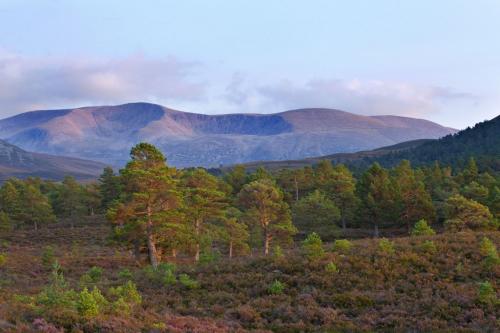The work carried out by SEFARI which relates to natural capital is varied and detailed, and encompasses soil, fresh water and biodiversity, together with the ecosystem services (including cultural services such as recreation, heritage, spiritual, amenity, and health) which they support. The vision for this work, and those carrying it out, is for recognition worldwide as leading authorities in the understanding and management of natural resources, and in the sustainable use of these resources in a manner that is resilient to future pressures.
The benefits of achieving this vision are to enable the sustainable growth of the Scottish and wider economy, our sense of place, and our overall health and quality of life. This work is therefore crucial, and is used in policy development and in practical application in areas such as climate change, land use for multiple benefits, and food security. More specifically:
For soils, we are working on research to increase the area of Scotland which is either under sustainable soil management practices, or is under restoration. This work underpins the idea of managing soil for multiple functions, a principle already set out in Scottish Government policy.
For water resources and flood risk management, research is consolidating our understanding of how to improve water quality and manage water flows, and developing measures to improve both of these. This includes predicting ways to ensure that current good water management practice remains robust and fit for purpose. This underpins the idea that ecosystem-based approaches which hit targets for water, soil and habitats, as well as developers, become the norm, rather than the traditional infrastructure approach. Such an approach can help increase Scotland’s international reputation in water and natural resources management, and ensure water resources enhance, not limit, sustainable economic growth.
For biodiversity and ecosystems, research is focused on addressing key gaps in our understanding of the processes contributing to the functioning and resilience of our soils, water and biodiversity. Our research is providing new approaches for focussing and delivering sustainable land management practices, and exploring how we can better measure the health of ecosystems and the services they provide. This work feeds into policy and practitioner communities, leading to a healthier and more resilient environment. This work has provenance in Scotland and further afield.
For integrated and sustainable management of natural assets, our research provides the scientific capacity and knowledge brokerage to support the Scottish Government and its agencies to achieve their aims, and through these, contribute to the UN Sustainable Development Goals. We take great pride in working with partners from Government and beyond in developing and maintaining work in this area.
We look forward to contributing far more as the move towards a necessary and accurate consideration of our natural environment, and that this must be used in decision making, continues to gather momentum.
Kirsty Blackstock, James Hutton Institute
